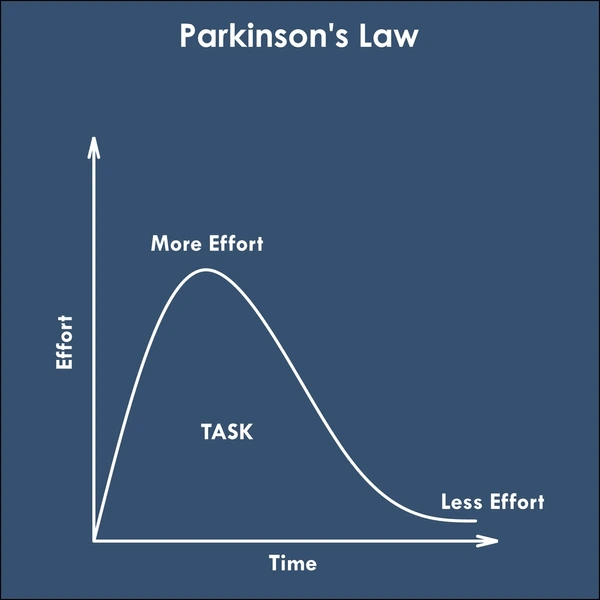Parkinson’s Law is the idea that work expands to fill the time allotted for its completion. The term was first coined by Cyril Northcote Parkinson in a humorous essay he wrote for “The Economist” in 1955. He shares the story of a woman whose only task in a day is to send a postcard – a task which would take a busy person approximately three minutes. But the woman spends an hour finding the card, another half hour looking for her glasses, 90 minutes writing the card, 20 minutes deciding whether or not to take an umbrella along on her walk to the mailbox … and on and on until her day is filled. She does this – cos she can.
I was recently talking with a client who, on covering for their staff member while on leave, they discovered that, with significantly less available time than their staff member, when they did the same tasks, they completed them in a much shorter timeframe. Now, it’s important to understand that while this may be puzzling and raise a question of potential inefficiency (or worse), this is not because their team member is necessarily a bad worker, or lazy or slack. There are lots of reasons why this is a common occurrence.
So why does this happen? Why is it that:
“If you have 20 hours available for a task that can be completed in 10 hours, it is quite possible that it will take 20 hours.”
When I look at my own team over the years, I have seen this regularly. Without a system with clear instructions and expectations on timelines and priorities, someone could easily spend half a day on a task that I could complete in 20 minutes.
4-day work week
Is Parkinson’s Law the reason why the 4-day work week is being embraced by some businesses? Are they completing the same amount of work in 4 days cos that’s the time they have? Or is the work being compromised? Or are people risking burning out because they don't get the necessary downtime?
Or have they answered some of the questions below so that work is more focused, prioritised and scoped?
How can Parkinson's Law be used to improve efficiency and job satisfaction? Some questions for you to consider:
Is it OUR responsibility? Maybe we don’t know enough about what people are doing, or we haven’t clarified expectations and don’t “monitor” someone’s output as much as we should.
Are we clarifying what is in and out of scope for a project or task so things don't get "over-worked"?
Do we clearly articulate the ‘why’ behind the task and how it contributes to the bigger picture and vision so people feel inspired to do their best?
Heck, maybe there are tasks that don’t need to be done at all. What if they are just old habits that are finding it hard to die?
Are people clear on their role and responsibilities – so they can stay on task and not get side tracked by other bright shiny things?
Have we established accurate timelines?
Do people know how to prioritise tasks?
Maybe it’s a matter of tackling the unsatisfying tasks first with the lure of the more satisfying and fun tasks awaiting you as a reward?
Maybe finding out what motivates you (or your team member) and dangling those carrots?
Or is it procrastination? It’s a well-known phenomenon that many of us like to feel the rush of adrenalin when we complete something under pressure – whether we know it consciously or otherwise.
Or do we think we're still operating in the Industrial Age and feel we need to push people so hard that they blow out the sides?
Are we making sure that people's wellbeing is also prioritised so they can do their best?
Taking time to consider the effect of Parkinson's Law in your business could have significant benefits to your productivity and staff engagement. What if a few tweaks weekly were to remove hours of productivity loss in your business? Sounds like a great investment.


